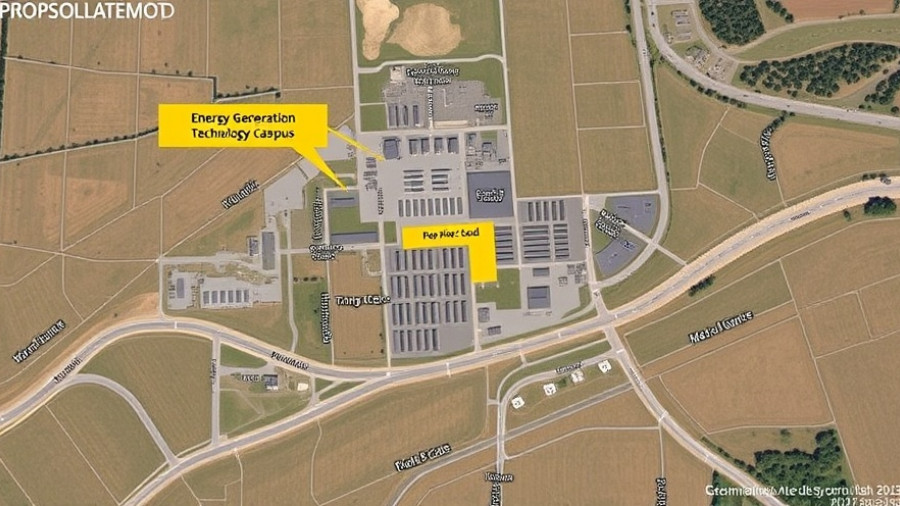
Massive Data Center Proposal Approved: A New Economic Chapter for Maricopa?
The Pinal County Planning and Zoning Commission has voted 6-2 in favor of a land-use amendment that paves the way for a significant data center campus south of Maricopa. Proposed by Tempe-based W Holdings, this Energy Generation and Technology Campus plans to "store, process, manage and distribute vast quantities of data" while promising secure and reliable access. While city officials and developers laud the potential economic benefits, concerns from community members and local leaders illustrate the complexities surrounding large data infrastructures.
The Economic Implications of Data Centers in Pinal County
The proposed campus spans 500 acres near Porter Road, straddling key access routes, and aims to align with Arizona's rapidly growing tech sector, driven by an escalation in AI adoption. Data centers serve as essential components of modern digital economies, supporting the backbone of online services from streaming to cloud computing. There are currently over 125 data centers operating in Maricopa County, indicating a remarkable boom fueled largely by demand for data handling and storage capabilities.
Concerns from the Community: Balancing Growth with Local Needs
While the prospect of economic growth excites some, voices of dissent have emerged, particularly from residents and the Ak-Chin Indian Community, which has raised alarms regarding potential noise pollution and environmental impacts. Vice Chairman Delia Carlyle emphasized the cultural significance of the land, pointing out that it contains known concentrations of cultural artifacts. Community opposition reflects a broader dialogue about the social responsibility of such developments and highlights the need for more comprehensive planning and discourse regarding their placement and operations.
The Bigger Picture: Arizona's Energy Landscape and Data Center Growth
As the influx of data centers puts substantial pressure on the state's electric grid, city officials are grappling with the challenge of balancing economic potential against increased energy demands. Utilities like APS are projecting a tremendous rise in demand for power, with requests for 500 megawatts becoming commonplace, the equivalent of supplying 500 big box stores. The infrastructure strains raise concerns over future rate hikes for residential users, a talking point echoed by Phoenix Mayor Kate Gallego, who advocates for equitable costs among energy consumers.
Future Predictions: What Lies Ahead for Data Centers in Arizona?
Efforts to address these rising challenges include potential changes in utility rate structures to ensure that data centers make fair contributions toward infrastructure growth. However, experts like Amanda Ormond are cautioning against hasty expansions without proper environmental considerations. As regulators look into the impacts of upcoming projects, the essential question remains whether Arizona can sustain its ambitious technological growth while preserving the interests of its residents and legacy.
What This Means for Maricopa and Its Residents
The approval of the Porter Road data center signifies more than just an extension of technological infrastructure; it marks a defining moment in how Maricopa County navigates the rapid evolution of data services and their implications on local communities. While proponents may see a golden opportunity for economic advancement, residents' concerns underscore a delicate balance that must be achieved.
Overall, as Maricopa looks towards embracing new investments in the data sector, it is crucial for city planners to engage with local communities proactively, ensuring that voices are heard, environmental considerations are prioritized, and equitable growth strategies are firmly put in place.
 Add Row
Add Row  Add
Add 




Write A Comment